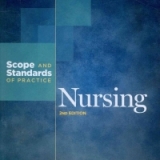PHYS 2251
Welcome! Click on a tab below to find books, articles, and websites for use in this course.
If you need additional help, stop by the Reference Desk or contact a reference librarian.
Getting Started: Finding a Topic
You'll want to start by picking out a topic that is interesting to you. Have a health question you've always secretly wondered about, such as whether chocolate really is healthy, or if vaping can hurt your lungs? Now is your chance to answer that question.
Feeling kind of lost for topics? Check out your textbook, the New York Times health section or search Google News with the word health to see what types of stories come up.
Background Information
We have a number of reference materials that can provide necessary detail so that you understand your topic.
Try the following online sources, each of which have the full-text of hundreds of dictionaries and encyclopedias:
- Gale Virtual Reference Library provides statistics, health information, and treatment info. This is a great place to start.
- Medline Plus Provides access to 700 health topics, medical encyclopedias and dictionaries, and videos.
Evaluating Websites
When it comes to health topics, nearly everyone has opinions: are we getting enough Vitamin D? How much exercise is enough? Your job is to evaluate the websites a Google search produces so that you can find good information--written by authors you can trust, that is up-to-date, and as objective as possible.
Authorship: Who created this website? What is their background on the topic? Are they trustworthy?
Bias: Why was the website created? What point of view does the author have? Does that limit the facts they present or how the facts are presented?
Date: How old is the information that is presented? Is it still accurate?
Questions? Check out the COD Library's guide to evaluating information.
Some places to find good information include:
Healthfinder
The U.S. government's directory of authoritative health information including links to online journals, medical dictionaries, and prevention and self-care information
MayoClinic.com
Easy-to-understand information on health and medical topics, all reviewed for accuracy by Mayo Clinic experts. (A service of Mayo Foundation for Medical Education and Research)
DuPage County Health Department
Check out Fact Sheets under Disease Control: Education
The CDC's Youtube Channel has some good resources that you can use to supplement your presentation. Try using Google with words like CDC Youtube Hepatitis.
Finding Books
Once you've discovered background info about your topic, you'll want to search our library catalog for more information.
You can also use the catalog to check for books on your topic. Often, books are written for a general audience, and you can use a chapter to support your information.
Start with a general search of your health topic or condition:
Now, take a look at the results. You can learn more about any of the items listed by clicking on the titles. Once you've decided that you do want to use a source, write down the title, location, and call number (circled below.) Any librarian can help you find the item with that information. (Notice, too, that all three books listed are in the same place on the library shelf:
Finding Articles
Articles will give you current and in-depth information about your research topic.
Academic Search Complete has great medical information aimed at a popular audience. Try a search for your topic and then select magazines, newspapers, or scholarly articles on the left of the result screen. Not sure if you're looking at a scholarly article? Check out my guide to both types of information.
Not finding anything on your topic in Academic Search Complete? Science Direct has full-text scholarly articles that you can use on a variety of scientific topics, including health.
Need some help reading a scholarly article? Check out Reading Research Articles for some tips.
Citing Sources
Find directions about how to cite your sources on the library citation guide.
Most databases will have a Cite link that you can also click to get article citations.
Finally, you are welcome to use NoodleBib if you'd like to use a program to create and organize your citations. You must "Create a New Folder" when you use NoodleBib for the first time. Click on "I am citing a(n):," choose the type of item you are citing, and then fill in the online form. Your bibliography will be formatted for you.
Worried about accidentally committing plagiarism? Check out the library's guide to academic honesty.
Class Exercise
When it comes to health information, there is a huge variety of information to sift through, some helpful and some...not. Let's get started by looking at the following links:
- The Complete Guide to Long-Term Fasting
- Fasting Diet: Can it Improve My Heart Health?
- Intermittent Fasting
- What Diet Helps People Live the Longest?
- Intermittent fasting, energy balance and associated health outcomes in adults: study protocol for a randomised controlled trial
Take a moment to look at your link to tell me the following:
- Who is the audience for the link? Is the info intended for experts, people with no background, or somewhere in between?
- Who is the author of the information? Do they seem credible?
- How old is the information?
- What is the information's purpose?
- (Finally) Is the link trustworthy? Why or why not?




